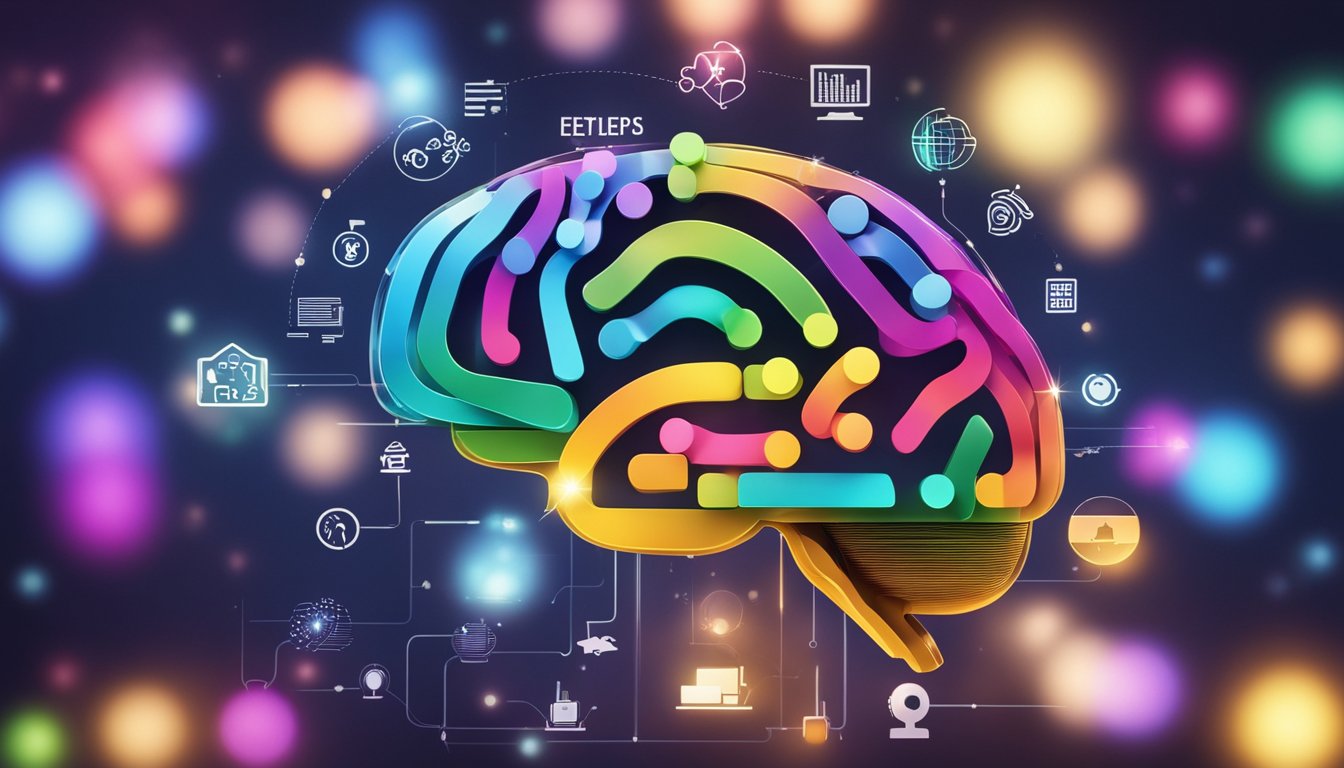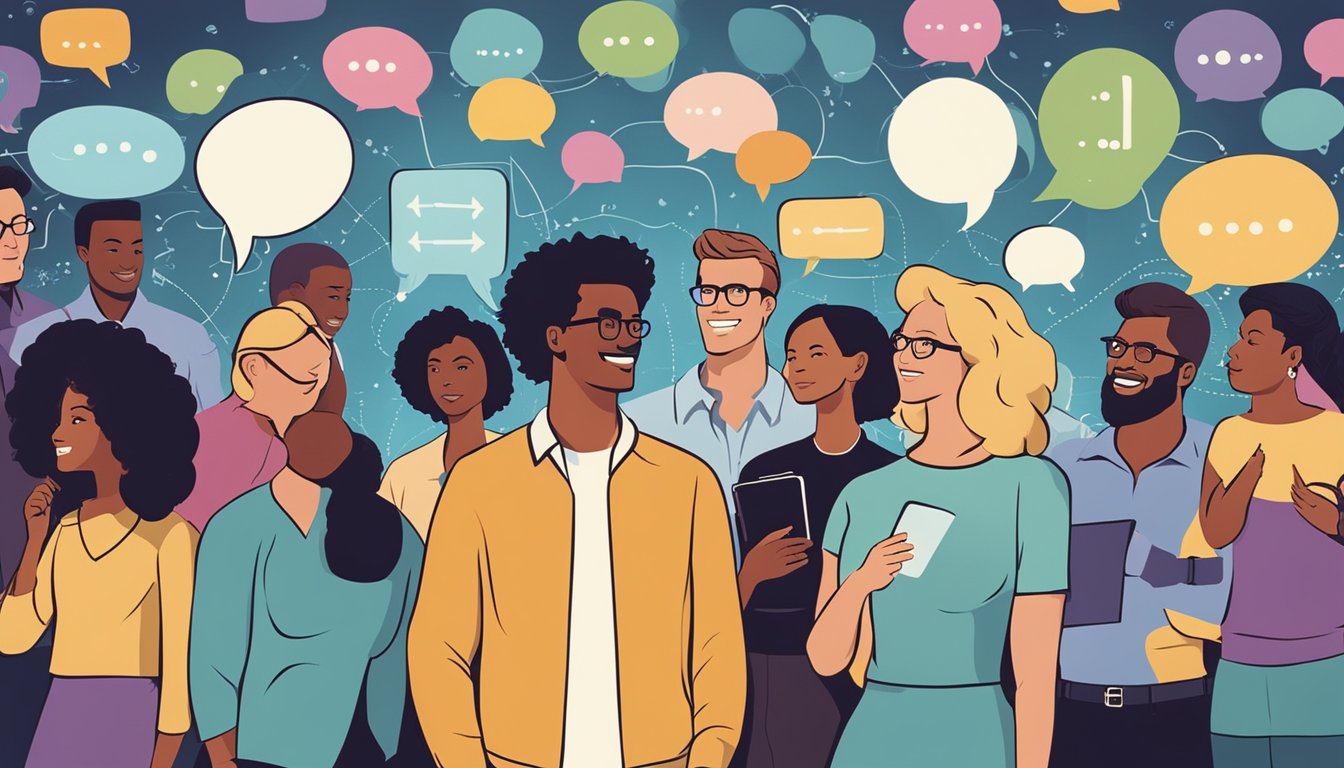What is a Growth Mindset?
Key Takeaways
- A growth mindset embraces the possibility of developing abilities through hard work.
- Challenges are seen as opportunities to learn and improve rather than insurmountable barriers.
- Adopting a growth mindset can lead to greater motivation and success in various life aspects.
You will not be surprised to hear that their are various types of mindsets according to psychologists. One mindset that has gained popularity is a growth mindset, inspired by the work of psychologist Carol Dweck. According to Dr. Dweck, through one’s ability and intelligence, a growth mindset can be developed over time. That said, you might ask yourself, how to develop a growth mindset.
This ideology sees potential as something that can be enhanced through dedication, learning from experiences, and persistence in the face of challenges. Individuals with a growth mindset approach life with a desire for learning and a resilience that is essential for great accomplishment. This ideology is in contrast to a fixed mindset, where people believe their qualities are static and unchangeable, a growth mindset fosters personal development and a willingness to embrace complex tasks.

A growth mindset involves perseverance and the recognition that intelligence and talent are just the starting point. This approach does not ignore people’s differences in talent, education, or starting points, but rather promotes the idea that everyone can change and grow through application and experience.
It encourages the view that learning from mistakes and overcoming obstacles are fundamental to expanding one’s skill set and achieving one’s goals. In the educational sphere, instilling a growth mindset in students has been shown to positively impact their motivation and achievement, emphasizing effort and strategy over innate ability.
Understanding Mindsets
Definition and Importance
A mindset refers to a set of attitudes or beliefs held by someone about their basic qualities, including their abilities and intelligence. The importance of understanding mindsets lies in their profound impact on learning, resilience, and personal development. People’s mindsets shape how they approach new challenges and recover from setbacks.
Growth vs. Fixed Mindset
As previously mentioned, the terms growth mindset and fixed mindset originate from the work of psychologist Carol Dweck. Individuals with a growth mindset believe that their talents can be developed through hard work, good strategies, and input from others. They perceive their abilities as starting points for their potential and not as finite.
On the contrary, those with a fixed mindset view their abilities and intelligence as static traits that cannot change significantly, regardless of effort. This perspective can limit persistence and resilience, as it leads to avoiding challenges and feeling threatened by the success of others.
A growth mindset fosters a love for learning and a resilience that is essential for great accomplishment. Conversely, a fixed mindset could stagnate development, as it entails a belief that no amount of effort can enhance one’s innate capabilities.
The Role of Challenges
The relationship between challenges and mindset is paramount in sculpting one’s approach to personal growth and resilience. Individuals’ reactions to setbacks and adversity are greatly influenced by their underlying beliefs about abilities and potential.
Embracing Challenges
Individuals who embrace challenges see them as necessary for growth and learning. They understand that encountering and overcoming obstacles is a critical component of skill development. For instance, professionals facing technological change view it not as a hindrance but as an opportunity to master new tools, often leading to enhanced productivity and job satisfaction.
Challenges as Opportunities
Challenges as opportunities dictate that setbacks are not roadblocks but catalysts for development. Scholarly research supports that a growth mindset can foster resilience in the face of difficulties, encouraging people to persevere through problems rather than avoid them. In educational settings, for instance, students who perceive difficult subjects as chances to improve can experience greater academic success, particularly in areas like science and mathematics.
Shaping Abilities and Skills

In the context of personal and professional development, one’s ability to shape their talents hinges on consistent effort and receptiveness to learning from experiences, especially setbacks. It is through deliberate practice and persistence that skills are honed and abilities are enhanced.
Effort and Development
Effort is the cornerstone of skill development. Individuals foster their abilities not merely through innate talent but through continuous, dedicated practice. Research underscores that a person’s belief in the value of effort can profoundly influence their capability to grow and improve their skills. For instance, engaging in growth mindset activities can reinforce the conviction that abilities are not fixed and can be developed with consistent input of effort.
- Practice: Integral to skill refinement
- Persistence: Essential for overcoming challenges during skill acquisition
Learning from Mistakes
A pivotal aspect of learning involves how one responds to mistakes. People with a growth mindset view setbacks as valuable opportunities for learning rather than indicators of failure. They tend to exhibit a higher degree of resilience, allowing them to persist and improve their talents despite difficulties. Embracing mistakes as a natural part of the learning process is critical for skill progression and long-term success in any endeavor. Learning to analyze and apply lessons from errors is underpinned by the belief, evidenced in discussions on using a growth mindset to develop skills, that skillsets are expandable and adaptable through experiences.
Influence of Mindset on Behavior

Mindsets powerfully shape individuals’ behaviors, particularly in their response to feedback and when facing criticism or failure. The internal beliefs that people hold manifest in diverse ways from their enthusiasm to step outside comfort zones to their overall experience of personal and professional growth.
Response to Feedback
Individuals with a growth mindset perceive feedback as a golden opportunity for learning and improvement. They tend to embrace challenges, viewing them as chances to expand their capabilities. In contrast, those with a fixed mindset may see feedback as a negative reflection of their unchangeable abilities and are likely to avoid situations where feedback is offered.
- Growth Mindset: Sees feedback as constructive and a means to personal growth.
- Fixed Mindset: May take feedback as personal criticism, hindering learning.
Handling Criticism and Failure
When it comes to criticism and failure, a person’s mindset can determine their resilience. Those with growth mindsets often recover more quickly from setbacks, understanding that failure is not an inherent limitation but rather a temporary hurdle. They are comfortable with being vulnerable and frequently step out of their comfort zone.
- Growth Mindset: Views failure as a lesson and a stepping stone to success.
- Fixed Mindset: Likely to avoid risks to prevent failure, thus staying within their comfort zone.
For further reading on the importance of mindsets regarding success and self-perception, consider the Stanford research on mindset and worldview. Additionally, the conceptualization of the growth mindset aligns closely with intrinsic motivation as described in neuroscience studies, which can be explored here.
Impact of Mindset on Success

The type of mindset an individual or organization harbors plays a critical role in their ability to achieve success and meet goals. It is not merely about the objectives themselves but the underlying attitude and motivation that drive the journey towards these achievements.
Achieving Personal Goals
A growth mindset, as detailed by Verywell Mind, is crucial in setting and accomplishing personal goals. Individuals with this mindset see their abilities as malleable, which fuels their motivation to persist and excel even when faced with challenges. Success in this context becomes a journey rather than a single accomplishment, with each hurdle serving as a catalyst for further development and attainment of long-term goals.
Growth Mindset in Organizations
In an organizational context, fostering a growth mindset can significantly impact collective achievement and progress. Organizations that encourage learning from setbacks rather than viewing them as failures create an environment ripe for innovation. This attitude enables not just individual employees but the entire institution to align more closely with their long-term goals, adapt to changes, and continuously move toward greater achievements.
Cultivating a Growth Mindset

A growth mindset is the belief that abilities and intelligence can be developed through dedication and hard work. This concept not only fosters individual talent and self-belief but also creates a love for learning and resilience essential for great accomplishment.
Strategies for Individuals
- Setting Achievable Goals: Individuals should set specific, measurable, and attainable goals that provide direction and motivation for personal development.
- Embracing Challenges: Intentionally engaging in challenging tasks contributes to skill enhancement and the strengthening of self-belief.
- Persistent Effort: Recognizing that effort is a path to mastery, individuals cultivate habits of perseverance, even when progress seems slow.
- Learning from Criticism: Constructive feedback should be viewed as a valuable source of guidance, aiding in the refinement and advancement of skills.
Fostering Growth in Others
- Creating a Supportive Environment: Teachers and parents can establish an environment that encourages risk-taking and values the process of learning over the end result.
- Praising the Process: It is vital to praise the effort, strategy, and progress, rather than innate talent, to reinforce the value of working towards development.
- Modeling Growth Mindset Behaviors: Adults exemplifying growth mindset behaviors inspire kids and other adults to adopt a similar approach to their own challenges and learning experiences.
- Encouraging Self-Reflection: Guiding individuals to reflect on their learning and problem-solving strategies helps cultivate an awareness of their personal growth journey.
The Science of Growth Mindsets

Recent investigations into the nature of intelligence and ability have unveiled the dramatic role that one’s mindset can play in learning and brain development. A growth mindset isn’t just a motivational tool; it has a profound scientific basis that explains how the brain changes and adapts in response to new information and challenges.
Brain Plasticity and Learning
Brain plasticity, or neuroplasticity, refers to the brain’s capability to reorganize itself by forming new neural connections throughout life. This plasticity is the foundation upon which the concept of a growth mindset is built. Research has shown that individuals who adopt a growth mindset believe that their intelligence and abilities can be developed over time, which aligns with how the brain can strengthen and create new pathways as one learns and experiences.
Key Points:
- Neural pathways: Change and adapt in response to learning.
- Attitude toward struggling: Those with a growth mindset see challenges as opportunities to develop their abilities further.
Advances in Neuroscience
Neuroscience has provided insights into how a growth mindset affects the brain, particularly the prefrontal cortex, which is involved in behavior, decision-making, and learning. Studies using functional magnetic resonance imaging (fMRI) have observed that when individuals face challenges and persevere, there is increased activity in the prefrontal cortex. This suggests that embracing a growth mindset not only influences behavior but also enhances brain development.
Key Points:
- Neural activity: Heightened in the prefrontal cortex during challenging learning tasks.
- Study evidence: Demonstrates a correlation between a growth mindset and increased neural engagement.
By understanding the science behind growth mindsets, educators and learners can better appreciate the profound impact that beliefs and attitudes can have on one’s neural and cognitive development.
Growth Mindset in Education

Growth mindset, a term coined by psychologist Carol Dweck, refers to the belief that abilities and intelligence can be developed through dedication and hard work. In the context of education, this perspective significantly impacts teaching practices and academic engagement, influencing student motivation and learning outcomes.
Educational Interventions
Educational interventions that promote a growth mindset among students are central to achieving increased engagement and higher academic achievement. Key strategies involve praising effort rather than innate ability, which encourages students to embrace challenges and persist in the face of setbacks. One effective intervention is to normalize the struggle associated with learning, framing it as a necessary step in the process of intellectual growth. Programs and interventions focus on the idea that effort and strategies, along with help from others, can lead to improvement and mastery.
Teachers can create classroom cultures that recognize and reward resilience in studying and problem-solving, emphasizing that setbacks are learning opportunities rather than indications of innate limitations. Such initiatives have been shown to lead to better student outcomes in terms of grades and overall academic achievement.
Importance of Teacher Mindsets
Teachers’ own mindsets play a crucial role in fostering a growth-oriented environment. When educators exhibit a growth mindset, they are more likely to implement classroom practices that value persistence and learning over speed and performance, which, in turn, supports students’ development of similar attitudes towards learning.
Moreover, the adoption of a growth mindset by teachers directly affects their engagement with students and their dedication to teaching. By focusing on continuous improvement and learning from their experiences in the classroom, teachers reflect the very principles they seek to instill in their pupils. Consequently, this approach may lead to improved educational outcomes and more effective instruction.
By embedding these principles into the fabric of classroom interactions, educators can help students internalize a growth mindset, setting the stage for ongoing intellectual growth and a lifelong love of learning.
Frequently Asked Questions

What qualities define a person with a growth mindset?
A person with a growth mindset believes their talents and abilities can be developed through hard work, good strategies, and input from others. They view challenges as opportunities to improve and are resilient in the face of setbacks.
How can individuals cultivate a growth mindset in their daily lives?
Cultivating a growth mindset involves embracing challenges, persisting in the face of setbacks, learning from criticism, and finding lessons in the success of others. Individuals can engage in mindset assessments and reflective journaling to track their progress.
What are some examples of growth mindset phrases or quotes that can inspire change?
Examples of growth mindset phrases include “Effort is the path to mastery,” and “Failures are just opportunities to learn.” Such phrases serve as reminders that one’s abilities are not fixed and that each mistake is a chance to grow.
Can you provide an overview of the research findings on the impact of a growth mindset in education or professional settings?
Research findings suggest that individuals with a growth mindset are more likely to persevere when faced with challenges and are more motivated to learn. In educational settings, this mindset can lead to higher achievement, while in professional environments, it can enhance personal and organizational development.
What are the main differences between a fixed mindset and a growth mindset?
The main difference is that a fixed mindset assumes that abilities and intelligence are static traits, while a growth mindset sees them as qualities that can be developed. People with a fixed mindset may avoid challenges, give up easily, and feel threatened by the success of others.
What strategies can educators employ to foster a growth mindset culture in the classroom?
Educators can foster a growth mindset by providing growth-focused feedback, encouraging students to set learning goals, teaching brain plasticity, and celebrating the learning process rather than just the results.








